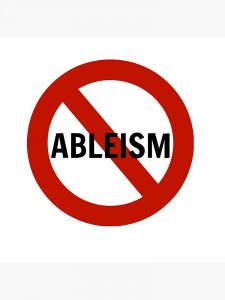I had been meaning to contribute to Redefining Stammering for some time now. Sam reached out after reading a paper I had published, with co-authors Ellen Rombouts and Pascal Borry, in the Journal of Fluency Disorders.
The paper, a carved-up version of my master’s thesis, presented the following argument: the scientific hope of discovering developmental stuttering’s biological explanation is seen as a reasonable hope because, among other things, it frames stuttering as a ‘lack’ and a ‘deficit’ to be rehabilitated. The paper argued that this hope, driven by its ableist language, is fundamentally disabling in nature: it disables, or forecloses, the possibility for alternate hopes to stabilise, i.e., a hope in a future where stuttering is not something to be managed and corrected – a ‘lack’ not to be coped with and a ‘deficiency’ not to be remedied. To manage this disablement, the paper suggested, the scientific community should incorporate participatory research methods into their practice.
In this blog post, however, I want to attend to something quite different, if somewhat related. In the last couple of weeks, two things happened on social media that drew my attention: one took place on big social media and the other on small social media. On big social media, Lizzo, a multi award-winning American singer, rapper, and songwriter, was made aware that lyrics to her song ‘Grrrls’ contained an ableist slur. What did Lizzo do? Well, this is what Lizzo said in response to her dissenters: “It has been brought to my attention that there is a harmful word in my new song Grrrls. Let me make one thing clear: I never want to promote derogatory language…”. Following this Lizzo amended the lyrics and released a new version.

While this was happening on big social media, something similar was taking place on small social media. On Twitter, a research lab specialising in investigating the neural basis of stuttering, had been posting their regular weekly posts. The posts, or threads, going up on a Friday, summarise the latest research taking place in the lab and elsewhere. They are informative posts. To reach as wide an audience as possible, and rightly so, the threads end with various hashtags: #Stuttering #Stutter #Neuroscience #Research and so on. The hashtags are not set in stone: in any given week, depending on the topic being discussed, new hashtags are added, some are removed, but some stay constant, e.g., #Stuttering #Stutter, and among the ones staying constant there is #FluencyFriday. No qualms with Friday – Fridays have all the potential to be a nice day. However, I am not so sure about ‘fluency’. I have never been sure about fluency.
Now, at first sight, of course, ‘fluency’ is not in the same league as the word for which Lizzo apologised and amended the lyrics to her song. Fluency might not be a derogatory term, but is it ableist? I think so. Why should I, as a person who stutters, aspire to fluency – on a Friday or a Monday or a Saturday – when I don’t think there is anything wrong with my stuttering. But this, in my opinion, is not a problem: I understand the desire for fluency. That I understand this desire it not because stuttering is inherently undesirable. Rather, because to live as a person who stutters in a world where speech that is fluent is speech that is good and speech that is good is speech that is heard and speech that is heard is speech that matters, stuttered speech becomes the barometer, among other barometers, through which fluent speech can assert its importance. Put differently: that fluency is seen as a stable category, or aspirational or desirable, is because stuttering, described as the absence of fluency in some negative relation to ‘normalcy’, is always there to provide the required scaffolding.
Or, putting differently bluntly: fluency is not the opposite of stuttering and stuttering is not the opposite of fluency. To pit them against each other again and again cements the ableist pipeline where the only light at the end of the tunnel is fluent speech – a tunnel that I neither constructed, nor help build, and, as it stands today, don’t have a maintenance contract for. The desire for inventing light is strong; hide the switch. A tunnel that, if I am being frank, doesn’t exist. Except that it does exist. It exists when we first go to speech therapy, and then soon find out that it doesn’t exist. The tunnel exists, also, when colourful images of the brain are splashed across news pieces reporting on the latest study to have identified the regions responsible for stuttering, but only to find out that some ill-fitting blocks – ‘healthy’ controls, ‘normal’ brains, brains of ‘fluent’ speakers – were pieced together to bring it into existence. Shaky foundations, shaky tunnels. It exists, too, for our anxious kinfolk who first notice our stutter as children, and, in that moment, their lives – and ours with them, and our stutter with us and them – flashes before their eyes, and then, finally, as time goes by, the train to fluency-land stops calling at stutter station. Too far? Denial? Stuttering is not the opposite of fluency and fluency is not the opposite of stuttering (for a more nuanced take please refer to this recently published paper). You see: no qualms with Friday, but abundant qualms with fluency. I am aware of the irony: the paper I opened this post with was published in the Journal of Fluency Disorders. All I can say about my hypocrisy on display here is this: it takes time for disciplinary conventions to change. Tick…tick…tick.
Back to the hashtag. A recap: #FluencyFriday adorns the threads which go up on a Friday and talk about novel and interesting neurobiological research on stuttering. After having done some digging – scrolling through Twitter – I gather that this has been the case since 2018. In the last couple of weeks, however, I noticed that Patrick Campbell (@Patrick1992C) had been leaving comments on these threads. From what I have been able to glean, the first such comment was innocuous enough: ‘Appreciate where you come from and aims to share research in understandable form but not sure #FluencyFriday is a helpful hashtag for stammering related research’. Polite enough, methinks. A week went by, and Patrick was at it again: ‘Hi, I mentioned last week but I’m quite against the #FluencyFriday. Would #StutteringSaturday not be better? Some people who stutter find society’s drive to fluency painful and stigmatising. I feel your hashtag is promoting fluent speech as the right speech. Please re-consider’. In the land of 280 characters or less, not only did Patrick spell out the why of his complaint, but also offered an alternative.
Now, as far as I know myself, or as far as anyone could really know themselves, I am not someone who entertains conspiratorial thinking. But I will attempt some version of it here today. Imagine this: on a random Friday, the well-meaning folks at the lab posted their regular outreach thread. Then, Patrick left a comment – maybe it was read, maybe it wasn’t. Friday came again, and this time Patrick was more straightforward. Enter conspiratorial thinking. Members of the lab read the comment and there was a discussion, and in this discussion something to the tune of this might have been concluded: ‘hmm, no, we can’t agree to this request. Agreeing today will mean we agree every Friday. When will it stop? Where will it stop?’. Now, I am pretty sure this is not what happened, but maybe, just maybe, it really did happen, because when Friday came again, and the Friday after that, the ableist hashtag came with it.
For me, however, what cemented the hashtag as ableist wasn’t just what the hashtag contained, meant, or symbolised, but what the lab did, or didn’t do, when faced with critique. There was no offence. There was no defence. It was business as usual. This too, I think, is a symptom of ableism, one that we are all susceptible to: to let things slide, to not engage, to think of something being raised as an issue to be a non-issue. Principles? Ableist-hashtags-as-important-scientific-breakthroughs? Rehabilitating stuttering, for now and forever, one ableist hashtag at a time? Where is Lizzo when you need her? Bad questions, bad answers. There must be something else.
That there must be something else is because there is always something else. Where in one case there was redressal – apologies delivered, lyrics amended – in other there was silence. What could be the subtext behind this silence? It is important that we stay attentive to such moments – moments of redressal and moments of silence – for they reveal something worth thinking about. Am I reading too much into this? I don’t think so. What the silence revealed, for me, was something quite simple: resistance to change. A truly human sentiment. That we, as humans, resist change – big or small; online or offline; in our private lives or to our professional personas – is understandable. Change is messy, maybe even unnerving. But, you see, change is normal. With calls getting louder for taking pride in stuttering and people coming together to celebrate stuttering, silence is not a good look. Let’s have a chat, shall we? I am free Friday. I might not be fluently fluent, but that’s alright – isn’t it? Yes, it is.

I started off by saying that I had been meaning to contribute to Redefining Stammering for some time now. Truth be told, after having published the paper, I didn’t have anything novel and interesting to add to the discussion – and, sometimes, that’s alright. Then, Twitter delivered. This is not about advancing some version of linguistic prescriptivism, nor is it about policing language, neither is it about propagating a view that the science of stuttering doesn’t matter, and above all, it is not about telling people who stutter how to think about their stutter, about the physical pain we sometimes experience to get words out, or about the desires and aspirations we may hold for our way of speaking; rather, it is an appeal: an appeal to those researching stuttering to think about how the language we use matters. It is about thinking, and maybe reassessing, if the language we use to talk about stuttering might be implicated in propagating a view where people who stutter are always one step too short of being competent users of speech. I said it takes time for disciplinary conventions to change. It’s time. It’s time that we redefine the highly ableist, always disabling, and rather outdated notions of fluency one stuttering celebration at a time.
P.S. Please feel free to drop me an email to talk about anything and everything stammering related and/or if you would like a copy of the published paper. Thanks.
By Prabhat Prakash

Prabhat is a recent graduate of University of Leuven, where he studied for an Advanced Master of Science in Bioethics. Prior to this, he graduated from the University of Oxford with an MPhil in Social Anthropology.
Email: prabhatprakash93@gmail.com
Twitter: @prabhatprakasho